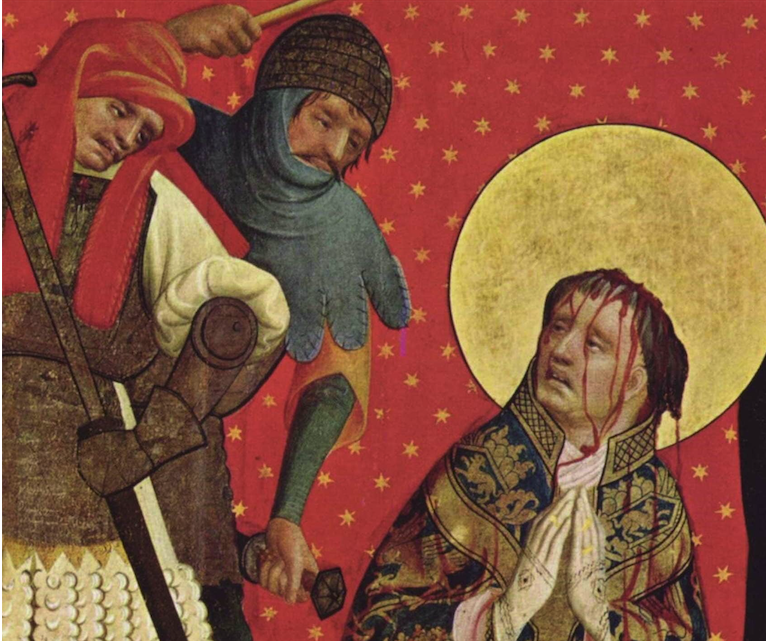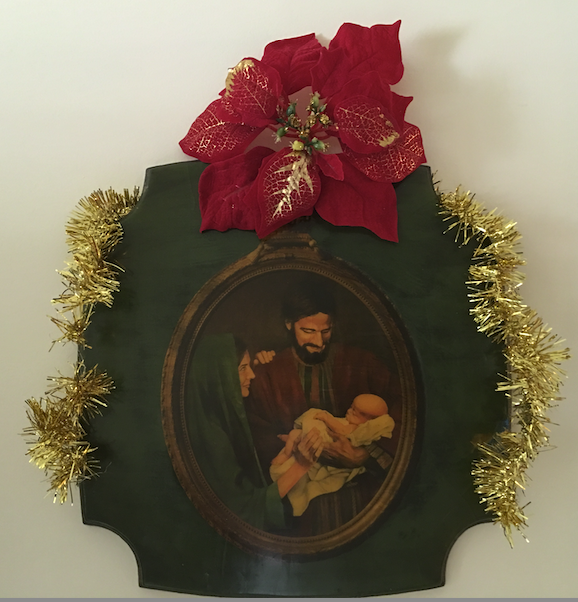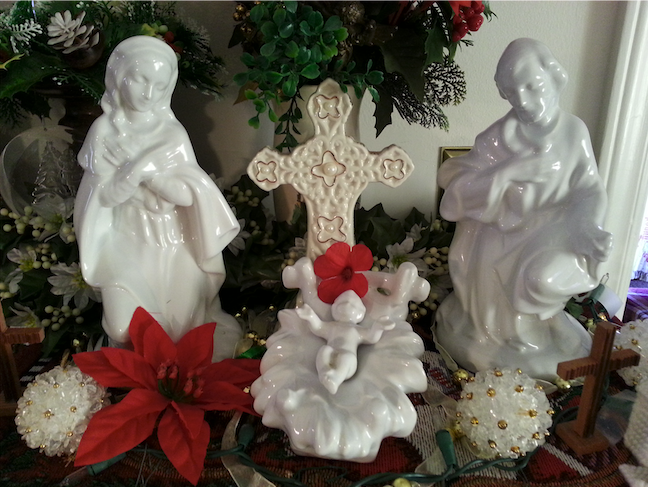These reflections are a result of more than 40 years of ministry as a Roman Catholic priest. Most of these years I spent in the Diocese of Charlotte which covers Western North Carolina. Now I am retired, and live in Medellín, Colombia where I continue to serve as a priest in the Archdiocese of Medellín.

Lord, now let your servant go in peace; your word has been fulfilled: my own eyes have seen the salvation which you prepared in the sight of every people, a light to reveal you to the nations and the glory of your people Israel. (Lk 2:22-35)
https://bible.usccb.org/bible/readings/122925.cfm
The Canticle of Simeon is the gospel reading from the Office of Compline in the Liturgy of the Hours and expresses profound praise for the light that God has revealed in the Christ Child. Although many of us have been sick in this Christmas season, we have seen the Lord’s salvation! Thomas Becket was martyred on this day in his own cathedral and still reminds us that our faith is worth it all. https://youtu.be/PtiCLJvyePw?si=TFXJ1v7rWl91KqmT

When the magi had departed, behold, the angel of the Lord appeared to Joseph in a dream and said, “Rise, take the child and his mother, flee to Egypt, and stay there until I tell you. Herod is going to search for the child to destroy him.” Joseph rose and took the child and his mother by night and departed for Egypt. He stayed there until the death of Herod, that what the Lord had said through the prophet might be fulfilled, Out of Egypt I called my son. (Mt 2:13-15, 17-19)
https://bible.usccb.org/bible/readings/122825.cfm
The sad story of Bethlehem and of the Holy Family is repeated in our own times and in the lives of refugees and immigrant families everywhere. José, María and Jesús are still knocking at the door. Will we slam the door in their faces, or will we allow God to crack open the door of our hearts? https://youtu.be/664mPFg0-Jg?si=TPLXBVMntckzwRL5

What was from the beginning, what we have heard, what we have seen with our eyes, what we looked upon and touched with our hands concerns the Word of life. (1 Jn 1:1-4)
https://bible.usccb.org/bible/readings/122725.cfm
The Letters of John, as well as the Gospel of John, are anonymous, they were NOT written by the John we celebrate in today’s feast. Scripture is a bit messy that way, it doesn’t always come neatly wrapped with a Christmas bow on top. In Christmas we celebrate God being born as one of us which means that how we treat one another now has divine consequences. Being a disciple involves hands, hearts, eyes and ears. When we make room in the inn for our brothers and sisters, then there is room for God. https://youtu.be/HHePtUD295Q?si=zCXPuQcbRou0bt4e

As they were stoning Stephen, he called out "Lord Jesus, receive my spirit." (Acts 6:8-10; 7:54-59)
https://bible.usccb.org/bible/readings/122625.cfm
In his first Christmas Urbi et Orbe Message, Pope Leo said that responsibility is the sure way to peace. Those who do not love are not saved; they are lost. And those who do not love their brother or sister whom they see, cannot love God whom they do not see (cf. 1 Jn 4:20). Saint Stephen’s birthday into heaven has pride of honor, the next day after Christmas, the birthday of the Lord. Today I remember my uncle, +Percy Irving Torp, who was born on this day in 1936 and died on December 30, 1985. https://youtu.be/n1MiPD6Wiik?si=1EZufKuCbLgtXIHY

He was in the world, and the world came to be through him, but the world did not know him. He came to what was his own, but his own people did not accept him. But to those who did accept him he gave power to become children of God. (Jn 1:1-18)
https://bible.usccb.org/bible/readings/122525-Day.cfm
He comes as one of the forgotten of this world, overlooked, abandoned, thrown away. But he is the true light that shines in the darkness and reveals the Love that never ends. May your Christmas be filled with the joy of his presence! https://youtu.be/w5_w2XpG7DI?si=IjTRHfYM9zq6fzFI



